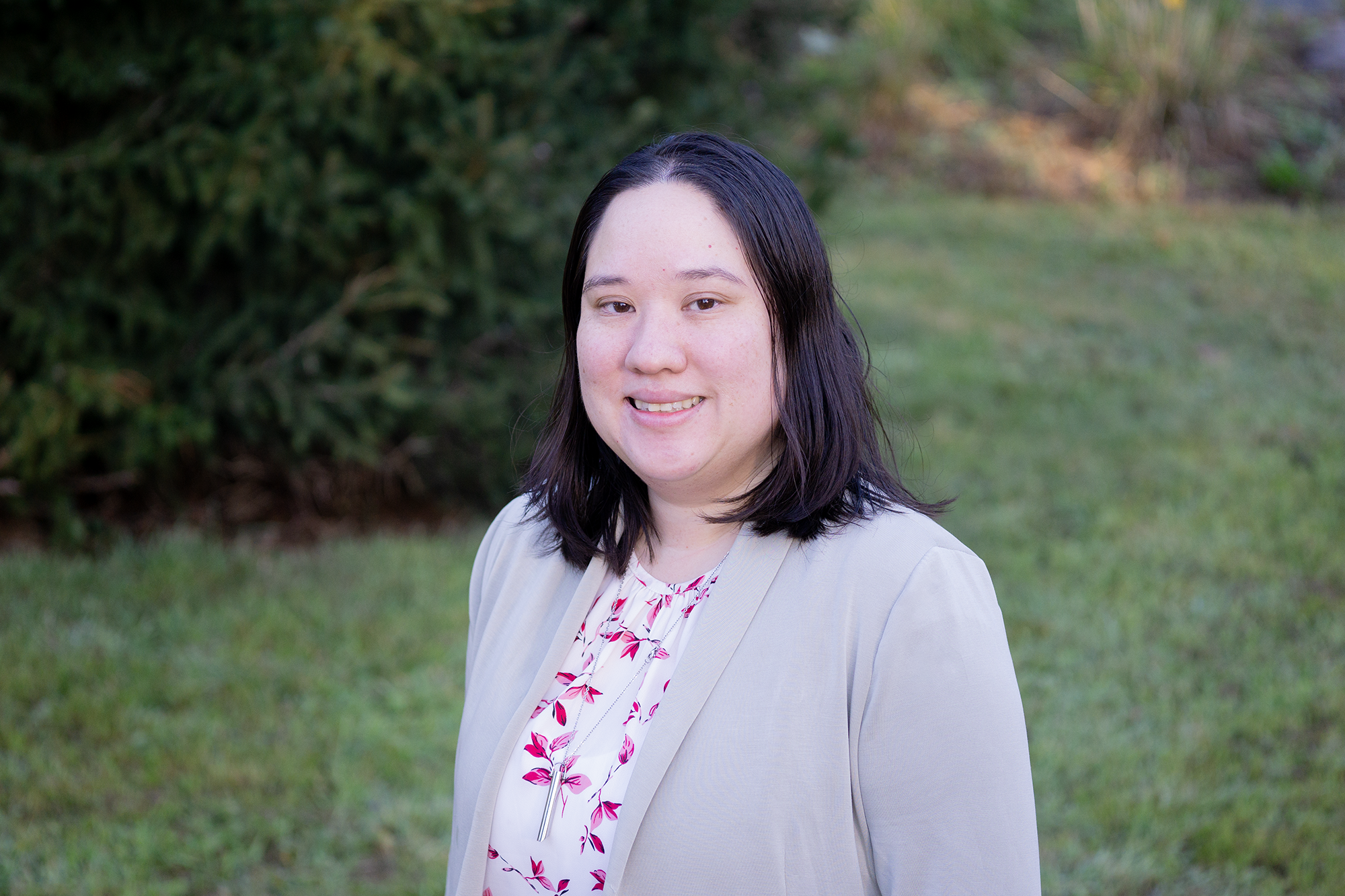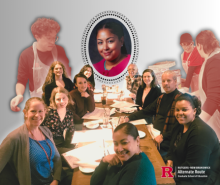Federal Layoffs Create a New Opportunity for Mariesa Herrmann

This year is ending with 300,000 fewer federal workers, representing the largest single-year decline in civilian federal employment since World War II. Education researcher Mariesa Herrmann was one of the workers impacted when her research organization, a federal contractor, was forced to make reductions. Herrmann received a 50% furlough, and many colleagues were laid off.
While Hermann still works for the organization a couple of times a month, the change prompted her to consider other opportunities that were more sustainable.
“I always had an interest in teaching, so it’s something I thought of time to time,” she said. “I saw Teacher Apprenticeship Network posted a message about fired federal [workers and] contractors, encouraging them to come teach in New Jersey, and it felt like a good fit. … Now I’m at Rutgers, where I’m learning more about teaching practices.”
Compared to the rest of the nation, New Jersey has one of the lowest teacher shortages, but that doesn’t mean the state is without challenges. There are still 3,000 unfilled teacher vacancies and 2,811 teachers who are not fully certified for their teaching assignment, including Hermann. Helping address the math teacher shortage, Hermann, who holds a PhD in Economics from Columbia University, stepped in on an emergency, provisional certification.
In this Q&A, she shares her passion for education, how she has to shift her mindset from research to teaching, plus her experience working with the Teacher Apprenticeship Network (TAN) and Rutgers Alternate Route..
Meet Mariesa Herrmann
An education researcher, Herrmann is stepping into her first year as a math teacher this fall.
Responses have been edited and condensed for clarity
Rutgers Alternate Route:
Tell us a little about your interest in education and teaching.
Hermann:
Growing up, I attended schools that were considered low-performing, but I had some good teachers who taught me math and writing. For the last 13 years, I’ve led research to improve education because I strongly believe all children deserve educational opportunities that I received and I want for my own children. Teaching is just another way I can help provide students with that high-quality education.
R:
How has your experience as an education researcher been foundational to your new role as a teacher?
H:
One of the things we know is after the pandemic, there has been a huge mental health crisis. What we also know is when people are in a state of fight or flight, their cognitive functions actually shut down. In addition, in math, a lot of people are self-conscious and don’t believe they can do it.
So, it’s important for me to create a safe home for students to support their learning and build their self-confidence in their ability to do math. And, you can do those things through breathing exercises, talking about growth mindset, or positive self-talk. I think those things are foundational to creating the space and mindset students need to be in before we get to the content.
R:
You’ve been training through TAN and Rutgers Alternate Route. What have you enjoyed about your training?
H:
My favorite part about Rutgers and TAN is the community of all the other aspiring teachers I get to interact with. I love being around and learning from these folks who are passionate about education and helping students. A lot of them are folks who are paraprofessionals and substitute teachers, and that helps me understand the current issues schools are facing, like cell phones and AI.
R:
How has the program challenged you?
H:
I have been the expert, and now I’m going to a place where I’m a novice and still learning. I think that takes humility and openness to learning—a perseverance. In learning, it takes hard work. Sometimes you make mistakes, sometimes you have to adjust.
R:
Where do you pull your confidence from when you encounter these challenges?
H:
In life, I’ve experienced difficulty … and knowing I’ve been able to push through and overcome is something that gives me faith in my ability to deal with the cards I’ve been given.
R:
What are you excited about as we enter the school year?
H:
I’m excited about working directly with students. … I’m looking forward to growing my classroom management skills, expanding my toolbox of instructional strategies, and making it so it’s something I can do more automatically and intuitively, instead of something I have to think about.
A program that creates more teaching opportunities
Are you ready to teach? Becoming a substitute teacher or paraprofessional is a great way for future teachers to get a taste of day-to-day life as an educator. These support roles mirror those of full-time, certified teachers, making learning on the job ideal for training.
ParaPreppED, an NJDOE-funded teacher apprenticeship initiative, has leveraged that on-the-job learning to help districts grow their teaching pool. The program makes becoming a certified teacher accessible to those who already hold a four-year degree. Emphasizing training on the job helps teaching candidates make the most of their time while receiving quality education and mentorship.
Resources from the Teacher Apprenticeship Network provide additional support for Rutgers Graduate School of Education to partner with districts to promote the apprenticeship, establish new USDOL-approved teacher registered teacher apprenticeship programs, and recruit talent.
The program’s format accommodates the unique experiences and needs of substitute teachers and paraprofessionals, making the appropriate channels easy for them to reach.
Overall, the program aims to:
- Increase the number of Registered Teacher Apprenticeships in the state;
- Expand the teacher pipeline, leveraging the existing district talent;
- Address barriers for aspiring teachers through targeted support like Praxis prep; and
- Conduct and disseminate ongoing research on the implementation and impact of the initiative.
ParaPreppED is driven by the expressed interests of district leaders who wish to identify overlooked or hidden teaching talent among eligible paraprofessionals and substitutes the district can support to fill teaching vacancies, including those in Special Education, Science and Math, and English as a Second Language or Bilingual Education.
If you’re considering following your dream of teaching, Rutgers Alternate Route can offer you the support and training you need to succeed. Be sure to follow Rutgers Alternate Route on Twitter and sign up for Alternate Route’s monthly newsletter for more information and stories from the field of education.

 Heather Ngoma has over 25 years of experience collaborating with educators across New Jersey to drive education innovation. She currently serves as the Director of the Rutgers-GSE Alternate Route Program in the Department of Learning and Teaching, a program which helps career changers, recent college graduates, and other aspiring education professionals become licensed teachers in New Jersey. Follow her on Twitter @heatherngoma.
Heather Ngoma has over 25 years of experience collaborating with educators across New Jersey to drive education innovation. She currently serves as the Director of the Rutgers-GSE Alternate Route Program in the Department of Learning and Teaching, a program which helps career changers, recent college graduates, and other aspiring education professionals become licensed teachers in New Jersey. Follow her on Twitter @heatherngoma.





